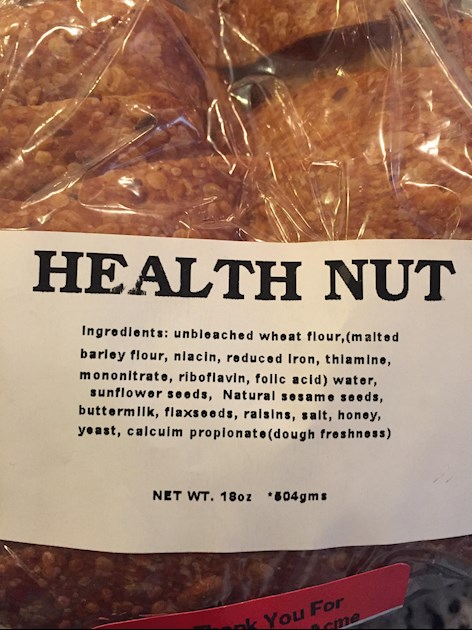Hi everyone!
Hope everyone is having a great day! It is a Saturday morning here in Akron, Ohio in the USA. I was just wondering what everyone's thoughts were on what breads are considered the most "healthy." I know that we should stay away from anything with high fructose corn syrup, or anything of the sort; however, I was just curious if it just depends on the person as to what bread type to eat. I have read things and heard contradicting views from many professionals. One told me that I should be eating whole wheat/wholemeal bread. Some have said to avoid gluten as much as possible because it is bad for your body and puts your stomach in knots. Others have suggested that multi-grain has the best source of minerals and nutrients. So, what are all of your thoughts on this topic? Do you prefer white, wheat, multi-grain, or gluten-free?
Also, I added a picture of some bread I purchased the other day!


 They're lacking in or devoid of vitamins and minerals, and because of this they actually take (leech) vitamins and minerals from the body. Gluten-free bread is nasty, nasty stuff with more fillers than regular bread. Stop eating bread for just 1 month then try it again. For me, it was like eating cardboard and I felt bloated. Eating bread was just a habit, and I stopped the habit. Napa cabbage leaves are my slices of bread now—much more filling and with no digestive distress.
They're lacking in or devoid of vitamins and minerals, and because of this they actually take (leech) vitamins and minerals from the body. Gluten-free bread is nasty, nasty stuff with more fillers than regular bread. Stop eating bread for just 1 month then try it again. For me, it was like eating cardboard and I felt bloated. Eating bread was just a habit, and I stopped the habit. Napa cabbage leaves are my slices of bread now—much more filling and with no digestive distress.